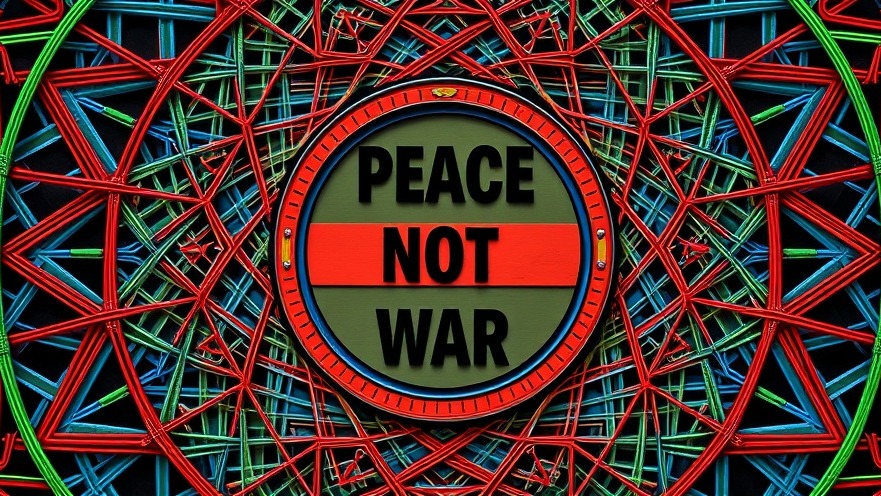
Egypt Condemns Israeli Aggression: A Call for Unity
In a stern address at the United Nations Security Council, Egypt's Permanent Representative, Ambassador Osama Abdel Khaleq, condemned Israel's aggressive actions towards Qatar. His remarks did not merely highlight the immediate threat posed by these actions, but also criticized the international community for its passive response.
Abdel Khaleq asserted that the lack of decisive deterrence emboldens aggressors in the region, warning that the Israeli attack on Qatar could set a dangerous precedent. He initiated a plea for urgent UN intervention, stating, "Qatar is not alone... and its security is part of our security and Arab national security." This sentiment underscores the regional ramifications of isolated conflicts, emphasizing that the turbulence in one nation can easily spiral into broader geopolitical instability.
The Underpinnings of Regional Security
For investors and policymakers, Abdel Khaleq's warning is particularly pertinent as it emphasizes the fragile nature of stability in the Middle East. Historical precedents show us how such conflicts can impact global trade lines, disrupt economic partnerships, and create rifts among nations that were previously allied. His call for a united Arab front hints at the necessity for governance strategies that ensure cooperative security arrangements to stabilize not just Qatar but the region's economies as a whole.
Implications for Global Trade and Governance
The effects of escalating tensions can reverberate beyond local borders. Israel's aggression could complicate Pakistan's energy cooperation, especially regarding vital trade routes. It could also affect Africa's political landscape, particularly in the context of growing relationships with superpowers such as China.
Egypt’s focus on diplomacy also speaks to a broader trend within Africa, whereby nations are increasingly looking towards multilateral approaches to foster stability. This remains crucial as Africa seeks to navigate its own economic policies and engagements in global forums.
A Path Forward: Engaging Through Diplomacy
The time is ripe for Africa to reinforce its geopolitical strategies through platforms like the African Union, to advocate for comprehensive conflict resolution tactics. Policymakers must foster dialogues that transcend conflicts and engage all parties involved. The path towards a peaceful resolution will not lie solely within the frameworks of past diplomatic efforts, but within innovative negotiations that address the dynamic shifts in global politics today.
Undoubtedly, an understanding of these complex narratives centered around Israeli actions can provide invaluable insights for business leaders, investors, and policymakers on Africa's role in the international arena.
As the landscape continues to evolve, it is vital for all stakeholders to remain vigilant, collaborative, and proactive in safeguarding not only their immediate interests but the foundational ideals of peace within the region.
 Add Row
Add Row  Add
Add 


Write A Comment